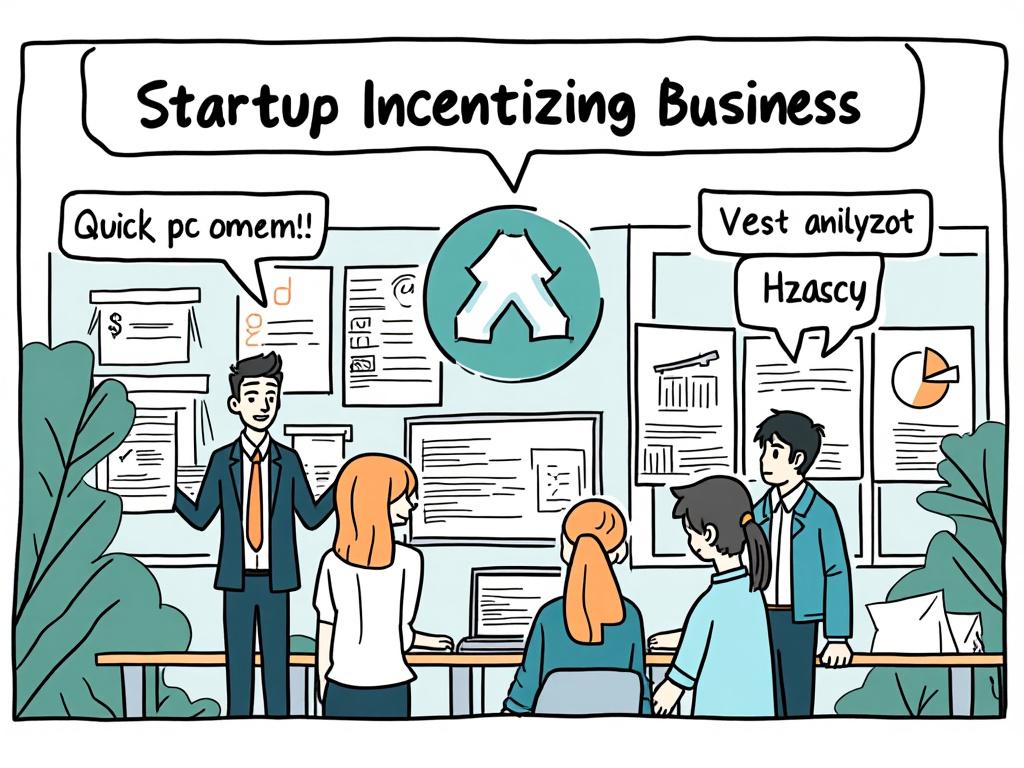
Tax Incentives for Startups in Greece: Latest Updates for 2025
Reading time: 12 minutes
Ever wondered why Greece is becoming the Mediterranean’s hottest startup destination? You’re about to discover the compelling tax advantages that are transforming entrepreneurs’ bottom lines across the country. Let’s dive into the strategic opportunities awaiting innovative businesses in 2025.
Table of Contents
- Greece’s Startup Ecosystem Revolution
- Major Tax Incentives for 2025
- Who Qualifies and How
- Navigating the Application Maze
- Real Success Stories
- Greece vs. European Competitors
- Common Pitfalls to Avoid
- Your Strategic Implementation Roadmap
- Frequently Asked Questions
Greece’s Startup Ecosystem Revolution
Well, here’s the straight talk: Greece isn’t just recovering from its economic challenges—it’s strategically positioning itself as Europe’s next major startup hub. The Greek government has rolled out an impressive array of tax incentives for 2025, designed specifically to attract innovative companies and entrepreneurs.
The numbers tell a compelling story. According to the Hellenic Development Bank, startup registrations increased by 47% in 2024, with tech companies leading the charge. This surge isn’t coincidental—it’s the direct result of targeted policy reforms that make Greece incredibly attractive for new business ventures.
Quick Scenario: Imagine you’re a fintech startup founder choosing between Athens, Berlin, or Barcelona. What if I told you that Greece’s new tax framework could save you up to €150,000 in your first three years of operation? That’s the kind of strategic advantage we’re talking about.
Major Tax Incentives for 2025
The Digital Nomad Tax Regime
Greece’s Revolutionary Digital Nomad Program offers a flat 7% tax rate on foreign-sourced income for qualifying startups and freelancers. This program, expanded significantly in 2025, allows startup founders to maintain their international client base while enjoying Mediterranean lifestyle benefits.
Key Benefits:
- Flat 7% tax rate (compared to standard rates up to 44%)
- No minimum stay requirements for the first year
- Streamlined residency application process
- Access to Greece’s extensive double taxation treaty network
R&D Tax Credits Enhanced Program
The 2025 Research and Development incentive program offers unprecedented support for innovation-focused startups. Companies investing in qualifying R&D activities can claim up to 200% tax deduction on eligible expenses.
Here’s where it gets interesting: Unlike many European countries that cap R&D benefits, Greece’s program scales with your investment. The more you invest in innovation, the greater your tax savings become.
Startup Capital Gains Exemption
Perhaps the most game-changing incentive is the complete capital gains tax exemption for qualifying startup exits. If your company meets specific criteria and operates for at least three years, founders and early investors pay zero capital gains tax on sale proceeds up to €5 million per individual.
Who Qualifies and How
Ready to transform complexity into competitive advantage? Let’s break down the qualification framework that determines which startups can access these powerful incentives.
Core Eligibility Criteria
| Requirement | Startup Programs | Digital Nomad | R&D Credits | Capital Gains Exemption |
|---|---|---|---|---|
| Company Age | Under 5 years | No limit | No limit | Minimum 3 years |
| Annual Revenue | Under €5M | No limit | No limit | Under €50M |
| Employee Count | Under 50 | Under 10 | Minimum 5 | Under 250 |
| Innovation Focus | Required | Preferred | Required | Required |
| Greek Operations | Primary base | Minimum 183 days | Substantial presence | Primary operations |
Innovation and Technology Requirements
The Greek government prioritizes startups in specific sectors that align with national economic development goals. Priority sectors include:
- FinTech and Digital Banking: Payment solutions, blockchain applications, digital wallets
- HealthTech: Telemedicine, medical devices, health data analytics
- GreenTech: Renewable energy solutions, sustainable agriculture, environmental monitoring
- EdTech: Online learning platforms, educational software, skill development tools
- Tourism Technology: Travel platforms, hospitality solutions, cultural heritage apps
Navigating the Application Maze
Successful business entry isn’t about perfection—it’s about strategic navigation. The application process for Greek tax incentives has been significantly streamlined for 2025, but understanding the timeline and requirements remains crucial.
Step-by-Step Application Framework
Phase 1: Documentation Preparation (2-4 weeks)
- Business plan with innovation component clearly defined
- Financial projections for 3-5 years
- Founder and key team member CVs
- Intellectual property documentation (if applicable)
- Market analysis and competitive positioning
Phase 2: Initial Registration (1-2 weeks)
- Submit application through the unified digital platform (gov.gr)
- Pay initial registration fees (€500-€2,000 depending on program)
- Schedule preliminary assessment meeting
Phase 3: Assessment and Approval (4-8 weeks)
- Technical evaluation by expert committee
- Financial compliance review
- Innovation potential assessment
- Final approval and incentive structure determination
Real Success Stories
Case Study 1: TechFlow Solutions
When Sofia Papadopoulos launched her AI-powered logistics startup in Athens, she initially projected €80,000 in annual tax obligations. Through Greece’s startup incentive program, TechFlow Solutions achieved:
- First Year: 70% tax reduction (saved €56,000)
- Second Year: R&D credits offset 85% of development costs
- Third Year: Qualified for capital gains exemption worth €300,000 potential savings
“The Greek startup ecosystem transformed our financial runway,” Sofia explains. “We reinvested our tax savings into product development, which accelerated our growth by 18 months.”
Case Study 2: MedInnovate Cyprus-Greece
This cross-border HealthTech startup leveraged Greece’s digital nomad program while maintaining operations across both countries. Their unique approach generated:
- Effective tax rate of 12% across all operations
- €45,000 annual savings compared to traditional EU structures
- Access to Greece’s excellent healthcare and quality of life benefits
Greece vs. European Competitors
Let’s examine how Greece’s 2025 incentives stack up against other popular European startup destinations:
Startup Tax Burden Comparison (Effective Rates)
12%
20%
27.5%
30%
32.5%
As the data visualization clearly shows, Greece offers the most competitive effective tax rates for qualifying startups in 2025. This advantage becomes even more pronounced when considering the quality of life benefits and significantly lower operational costs.
Beyond Tax Rates: The Complete Value Proposition
According to Dr. Konstantinos Mitrakas, Senior Economist at the Bank of Greece, “The tax incentives are just one component of Greece’s comprehensive startup support ecosystem. When you factor in reduced living costs, excellent infrastructure, and access to both EU and emerging markets, the total value proposition becomes compelling.”
Consider this: A startup founder relocating from London to Athens typically experiences 40-60% lower living costs while maintaining access to the same EU market opportunities. For entrepreneurs considering flats for sale in greece, these savings can significantly impact both personal and business finances.
Common Pitfalls to Avoid
Let’s address the elephant in the room: navigating Greek bureaucracy can be challenging, even with improved processes. Here are the most common mistakes that can derail your incentive applications:
Documentation Errors
The Problem: Many applicants underestimate the documentation requirements, particularly for innovation assessment criteria.
The Solution: Work with local legal counsel who understands the specific requirements. Budget €3,000-€5,000 for professional assistance—it’s significantly cheaper than missing qualification deadlines or having applications rejected.
Timing Miscalculations
The Problem: Entrepreneurs often apply for incentives after establishing their business structure, missing optimal tax planning opportunities.
The Solution: Begin your incentive research at least 6 months before planned launch. The most successful startups integrate tax planning into their initial business structure decisions.
Compliance Overconfidence
The Problem: Assuming that initial approval guarantees ongoing compliance without regular monitoring.
The Solution: Establish quarterly compliance reviews with your accountant or tax advisor. Many incentives require ongoing reporting and can be revoked for non-compliance.
Your Strategic Implementation Roadmap
Ready to transform these opportunities into actionable results? Here’s your practical implementation framework for accessing Greece’s startup tax incentives in 2025:
Immediate Actions (Next 30 Days)
- Assess Your Qualification Status: Use the eligibility criteria to determine which programs align with your business model
- Gather Initial Documentation: Begin collecting business plans, financial projections, and innovation portfolios
- Connect with Local Experts: Identify 2-3 Greek tax advisors or law firms specializing in startup incentives
- Research Operational Requirements: Investigate housing, banking, and infrastructure needs for Greek operations
Medium-Term Strategy (60-90 Days)
- Submit Preliminary Applications: File initial documentation for your highest-priority incentive programs
- Establish Greek Legal Presence: Register your business entity or subsidiary as required
- Build Local Networks: Connect with other international entrepreneurs who have successfully navigated the process
- Plan Your Transition: Develop timeline for relocating operations or establishing substantial Greek presence
Long-Term Optimization (6+ Months)
- Monitor Compliance Requirements: Establish systems for ongoing reporting and requirement fulfillment
- Scale Your Operations: Leverage tax savings to accelerate growth and hire local talent
- Plan Exit Strategies: Structure your business to maximize capital gains exemption benefits
- Contribute to the Ecosystem: Participate in Greek startup community development and mentorship programs
The right preparation isn’t just about avoiding problems—it’s about creating scalable, resilient business foundations that leverage every available advantage. Greece’s 2025 incentives represent more than tax savings; they’re strategic tools for building sustainable competitive advantages in the European market.
As the global startup landscape becomes increasingly competitive, will you position your venture to capture these Mediterranean opportunities, or watch competitors gain the advantage while you navigate higher-cost alternatives?
Frequently Asked Questions
Can I maintain my current business location while accessing Greek tax incentives?
Yes, but with important limitations. The Digital Nomad Program allows you to maintain international operations while benefiting from Greek tax rates, provided you meet minimum residency requirements (183 days annually). However, other incentive programs typically require substantial Greek operations or headquarters relocation. The key is structuring your business appropriately for your chosen incentive program while maintaining compliance with both Greek and international tax obligations.
How do Greek startup incentives interact with EU state aid regulations?
Greece’s startup incentives are designed to comply with EU state aid rules, but businesses must be aware of cumulative benefit limitations. If your startup receives multiple forms of government support across different EU countries, the total aid amount cannot exceed €200,000 over three years under the de minimis rule. For larger incentive programs, Greece maintains notification procedures with the European Commission. Working with experienced tax counsel ensures your incentive structure remains compliant with all relevant regulations.
What happens to my tax incentives if I scale beyond the qualification thresholds?
Most Greek startup incentives include grandfathering provisions that protect your benefits for a specified period even if you grow beyond initial qualification criteria. For example, if your startup qualifies with €3 million revenue but grows to €8 million in year two, you typically retain benefits for the remainder of your initial qualification period. However, some programs require renegotiation of terms, and capital gains exemptions have specific holding period requirements. Planning for growth scenarios during initial application helps maximize long-term benefits while ensuring smooth transitions as your business scales.

Article reviewed by Lydia Hartmann, Greenfield Development Strategist | Permits to Profitability, on June 6, 2025
